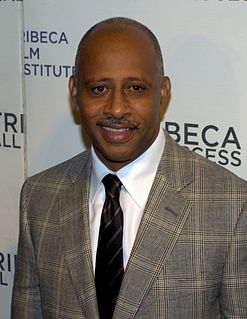A Quote by Michelle Alexander
After years as a civil rights lawyer, I rarely find myself speechless.
Quote Topics
Related Quotes
For many years now, I have been an outspoken supporter of civil and human rights for gay and lesbian people. Gays and lesbians stood up for civil rights in Montgomery, Selma, in Albany, Ga. and St. Augustine, Fla., and many other campaigns of the Civil Rights Movement. Many of these courageous men and women were fighting for my freedom at a time when they could find few voices for their own, and I salute their contributions.
In the summer of 1966, I went to Mississippi to be in the heart of the civil-rights movement, helping people who had been thrown off the farms or taken off the welfare roles for registering to vote. While working there, I met the civil-rights lawyer I later married - we became an interracial couple.
They came up with a civil rights bill in 1964, supposedly to solve our problem, and after the bill was signed, three civil rights workers were murdered in cold blood. And the FBI head, Hoover, admits that they know who did it, they've known ever since it happened, and they've done nothing about it. Civil rights bill down the drain.
My friends, to those who say that we are rushing this issue of civil rights, I say to them we are 172 years late. To those who say that this civil-rights program is an infringement on states’ rights, I say this: The time has arrived in America for the Democratic Party to get out of the shadow of states' rights and to walk forthrightly into the bright sunshine of human rights.
My dad spent most of the '50s and early '60s actually acting as sort of an advance man for the Justice Department, as a civil rights lawyer. So it was actually reading his papers after he passed away a few years ago that first started me thinking about this... What fraction of your life do you spend in service to your fellow man?
[Before the Civil Rights Act of 1964], many governments in southern states forced people to segregate by race. Civil rights advocates fought to repeal these state laws, but failed. So they appealed to the federal government, which responded with the Civil Rights Act of 1964. But this federal law didn't simply repeal state laws compelling segregation. It also prohibited voluntary segregation. What had been mandatory became forbidden. Neither before nor after the Civil Rights Act were people free to make their own decisions about who they associated with.





































